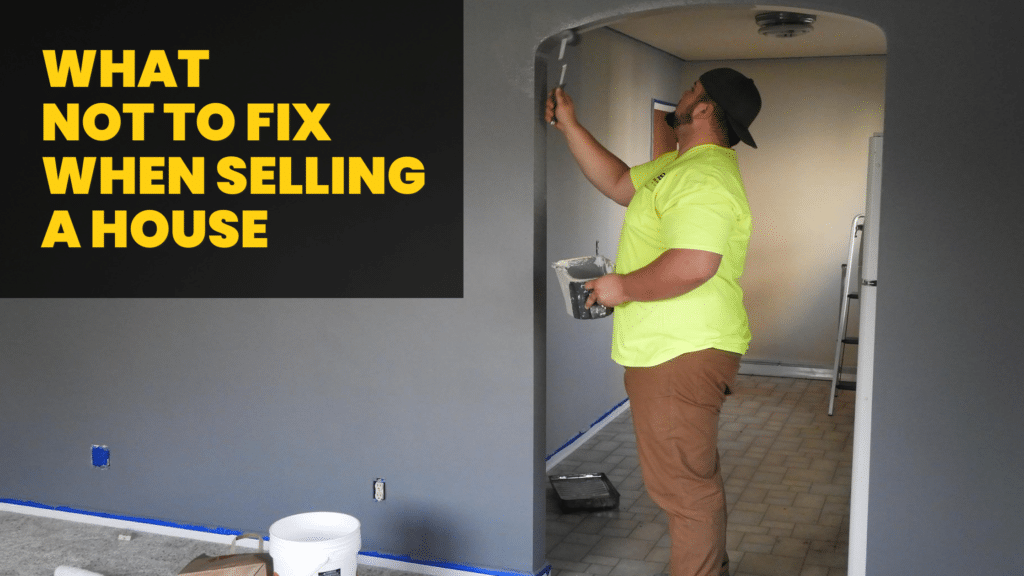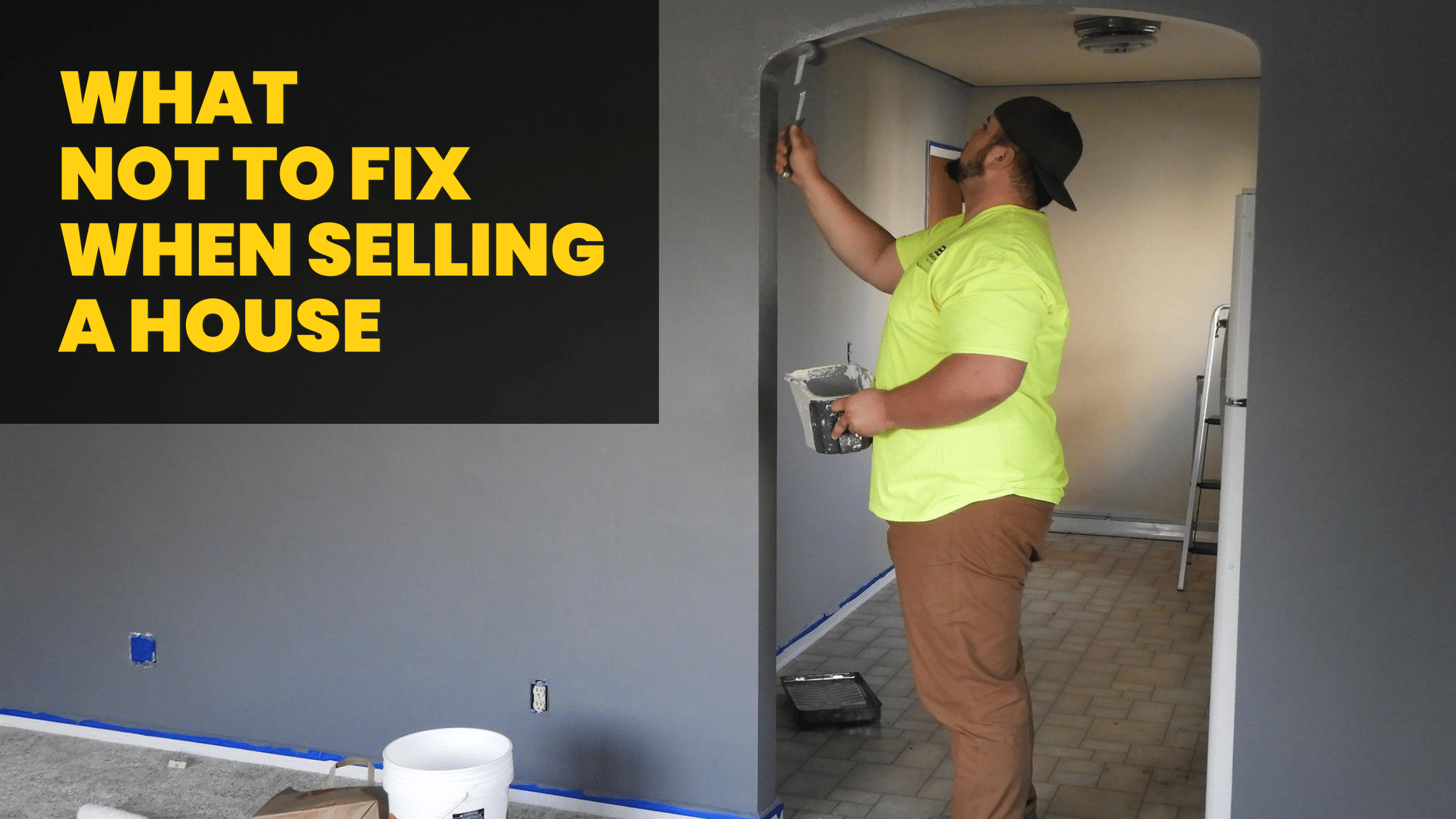When you’re selling your house, you want to get the best possible price for it. But sometimes, making repairs or renovations can end up costing you more than you’ll make back in the sale.
So what should you avoid fixing before putting your house on the market?
Here are a few things to keep in mind.

What Not to Fix when Selling a House
It’s important to know what can be safely ignored and what needs to be addressed before putting your house on the market.
Some common items that don’t need to be fixed before selling include:
- minor cosmetic damage, such as scratches or dings in the walls
- cracked floor tiles
- leaking faucets
- chipped paint
Some other things you shouldn’t worry about fixing before selling your house include:
- any damage that can be easily fixed with a little bit of elbow grease, like cleaning up stains or scrubbing the walls
- structural damage, unless it’s severe and would affect the safety of the home
- anything that would require a permit to fix, like electrical or plumbing work
- any issues that are specific to your house and wouldn’t be a concern for most buyers, such as a wonky doorbell or an odd layout
- Carpet or flooring
- Partial upgrades to bathrooms or kitchens
- Minor HVAC, electrical, or plumbing issues
- Windows and window accessories
- Old appliances
- Driveway or walkway cracks
- Normal wear and tear
Remember, the goal is to sell your house quickly and for the best possible price. So don’t spend money on unnecessary repairs or renovations that won’t add value to your home. Focus on making any necessary repairs and leave the rest for the new owners to deal with.
What is Necessary to Fix When Selling a House
While there are some things that you don’t need to fix before selling your house, there are other items that should be addressed to get the best possible price. These include:
- major structural damage, such as a leaking roof or cracked foundation
- electrical or plumbing issues
- infestation problems, such as termites or rodents
- any safety hazards, like broken stairs
These types of repairs can be expensive, but they will likely add value to your home and help it sell more quickly.
Common Repairs issues that arise during the sale of a house
- the buyer requests a home inspection, which reveals hidden damage that needs to be fixed
- the buyer is not satisfied with the condition of the home and requests a price reduction
- the buyer backs out of the sale due to concerns about the condition of the property
How to Avoid Having to Make Repairs After a Contract is Signed
In some cases, these issues can be avoided by having your house inspected before listing it for sale. This will allow you to address any problems that are found and avoid any surprises during the negotiation process.
There are a few things you can do to avoid having to make repairs after the sale of your house:
- have your house inspected before listing it for sale
- disclose any known damage or defects in your disclosure statement
be upfront about any potential problems with the property
By being honest about the condition of your house, you can avoid any issues that might arise during the sale.
Tips to Ensure Your House is in Good Condition Before Listing for Sale
Here are some tips for making sure your house is in good condition before listing it for sale:
- repair any visible damage, such as cracked floor tiles or chipped paint
- fix any electrical or plumbing issues
- address any infestation problems
- make sure the house is clean and clutter-free
By taking care of these things before listing your house, you can help ensure a smooth and successful sale.

